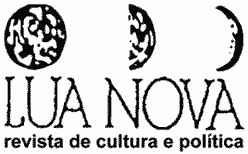Abstract
This paper revisits the theoretical debate of the 19th century on the roles of the State and civil society in the formation of post-revolutionary society, from which we will discuss certain interpretations that emphasized how the constitution of modern society presupposes the articulation between the sphere of the State - as a pole of institutionalization of legitimate power - and of civil society - as a space of a new subject of political legitimacy. We focus on François Guizot and his theoretical efforts to reconcile the existence of a centralized state and the emergence of a civil society that is the protagonist of modern political legitimacy. At the same time, we contrast it with the interpretations of Louis de Bonald, who criticizes the possibility of political legitimacy based on the sphere of civil society; and Alexis de Tocqueville, who believed that the centralized monarchical state would have prevented the formation and full political expression of French civil society.
Keywords:
State; Civil Society; France; Liberalism; Conservatism; Democracy
